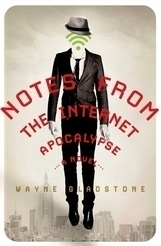4 Things the Internet Always Gets Wrong (Explained)

A few weeks ago, we had a great time talking about all the mistakes people make when arguing on the Internet. We got kinda sophisticated, discussing oft-botched theories such as Russell's teapot, Godwin's law, and Poe's law. And when I say "we," I mean "me," because we weren't talking; I was just writing an article by myself. But "we" did have a great time. (Again, "we" = me, alone, by myself.)

I just won a prize for making a masturbation joke in the shortest time in Cracked history.
Anyway, it turns out there is no shortage of stuff the Internet gets wrong when it's arguing. It also turns out that after dissecting three weighty theories in that last article, I'm tired. So this week, I'll start out like I'm an actual smart person talking about another theory thrown around in debates and then we can sit back and relax as the article devolves into more common ways the Internet sucks at arguing. Cool? Great. I'm glad we can talk like this.
Occam's Razor Does Not Mean the Simplest Answer Is Always Right
Have you ever heard of Occam's razor? If you'd asked me that question for the majority of my life, I would have replied either "Yes ...?" or "No ...?" Either answer would have sounded like a lie, because it's one of those things you think you've kind of maybe heard of but can't remember. And then some know-it-all explains it as "Y'know, that theory that states 'The simplest answer's always right!'" And then you're all like, "Oh, right. Yes! Yeah, I know that." Well, turns out that's kind of wrong.
Occam's razor is a heuristic maxim intended to guide research down the most productive course. Generally, it states that among competing hypotheses, the one with the fewest assumptions should be selected. But here's the thing: That's all it says. A "heuristic maxim" is a fancy phrase for a rule of thumb or a guideline. It's important to remember that more-complicated solutions can still be right. Occam's razor's just saying, as we try to figure this out, let's start with the theory that requires the fewest assumptions.

Heuristic maxim. Is that Latin? Geez, I'm tired already. Clown break. OK. Back to work.
Part of the confusion might be due to the fact that William of Ockham -- the Franciscan friar whose razor we're talking about -- died in 1347 and never even put this theory forth in words. Instead, the term "Occam's razor" first appeared in 1852 in the works of Sir William Hamilton, Ninth Baronet (1788-1856), who attributed it to William of Ockham's overall teachings. And here's the other thing: It's not the kind of metaphor you're thinking of. Like there's no cute story about a man shaving or something that helps illustrate the point. It's called Occam's razor because it's a way of "shaving" away extraneous information by choosing the theory with the fewest assumptions.
Nevertheless, as stated, it's just a guide. So let's say you notice that every time you put a saucer of milk outside your door, it's gone an hour later. What accounts for this phenomenon? Well, maybe there's a hungry cat in your neighborhood. Or maybe your next door neighbor has a fear of dairy products and also has an indentured servant who patrols his surrounding area to make sure nothing unsettling is ever put near his master. Occam would say, "Um, let's go with the cat theory, because it has the fewest assumptions to disprove."

"Or I might also say, 'Hey, my name's William and I'm from Ockah, why the fuck do you refer to me as Occam??'"
But that doesn't mean the cat theory is right. It's just a starting point. And another more complicated theory like, say, you're in a hotel and the waitstaff is merely cleaning, might also be right.
The Internet Doesn't Know What "Hipster" Means
If you look up "hipster" in Urban Dictionary, you actually get a really good definition. (It's also good at explaining what a blumpkin is.) But basically, aside from generalizations about fashion (tight jeans, androgynous shaggy haircuts, and thick framed glasses), hipsters espouse a counterculture aesthetic. They value more obscure forms of art and entertainment. In a sentence, the hipster prides himself on knowing what the cool stuff is and knowing it before everyone else thought it was cool.

"Sure, Arcade Fire is great, but Win Butler did his best work in the womb."
But too many people on the Internet seem to think a hipster is anyone who knows something you don't. I've had people in the comments refer to me as a hipster for liking Pink Floyd. PINK FLOYD. One of the biggest acts of the 1970s, one of the best-selling artists of all time in one of the most popular forms of music in the 20th century. That's not some obscure pick designed to impress. That's me saying, yep, that band that's always in everyone's top 10 of classic rock, I love them, too, just like millions of other people.
So yeah, lots of people have now found "hipster" a convenient thing to call anyone who just knows more shit. That makes college professors and librarians, and even people who know the actual definition of the word "hipster," hipsters.
Not Every Argument Without Footnote Citations Is a "Straw Man" Argument
Do you know what a straw man argument is? Cool, you're way ahead of most of the Internet. A straw man argument is one where you misstate what your opponent is arguing so you can then defeat it. Let's say the topic is background checks on guns. Your opponent is for them. You are not. If you give a 2,000-word rant about why gun checks mean systematically removing every single weapon from every American, and how that would be an affront to the Constitution, then congratulations, that is a straw man argument. You misstated the issue and then defeated it.

Another straw man argument? Straw men should be allowed to eat your babies.
But the Internet often uses "straw man" as merely a term for an "empty" or losing argument. Or more recently, I've seen people use that term for arguments that they feel are not properly supported. Any argument lacking citations seems to be considered a straw man argument. A few weeks ago, I wrote an article about the trend of some social justice warriors to shout check your privilege" and nothing more in their quest to make the world a better place. I gave three reasons that a catchphrase alone wasn't going to help anyone. I wasn't critical of any of the objectives of activist movements -- only the means. I think "check your privilege" -- those words without more -- is useless. Now, some people loved the article, and some people hated it. But the thing that struck me was how some people called it a straw man argument because I didn't provide sources that people use "check your privilege" in that way.
The comments had no shortage of defenders who apparently had been on Tumblr and knew such activists existed. There is no shortage of that mere buzzword activism online. But even if I was totally wrong (I wasn't) and you think I'm wrong to criticize people you don't believe exist, it's still not a straw man argument. A straw man argument would be one that said there is no value to the objectives of the "check your privilege" movement because all of its adherents merely spout three useless words. Then I would be mischaracterizing a whole movement to defeat it. Instead, it was merely a specific critique of parts of the movement.
The Internet Cannot Hold More Than One Idea in Its Head at a Time
The world is not black and white, but that's a huge problem for the Internet, because it loves to take sides. And in its quest to find Yes, No, Right, Wrong, it gets really confused by gray areas. This popped up again a couple of weeks ago when Gary Oldman gave an interview to Playboy about how he hated hypocrisy and political correctness, and how bad he also felt for Mel Gibson being ostracized in Hollywood. As you may recall, Mel got arrested for drunken driving several years ago, and that made him very mad. He called the arresting officer "sugar tits" and asked if she was a Jew before advising her that "Jews start all the wars in the world."

When Mel Gibson says Jews start all wars in the world, do you think he's also including
the War of Whiskey & Cigarettes vs. His Face?
Oh, by the way, if someone was about to forgive him for that, there's also taped audio of him threatening his ex in which he says he'll make her blow him before he burns her house down, and that she dresses so provocatively, she's gonna get "raped by a pack of n*ggers." Solid stuff from a man so hated that even Australians now feel compelled to let you know, "Um, by the way, Gibson was actually born in the U.S. Before immigrating to Australia as a boy, just sayin ..."
So anyway, Gary Oldman, one of my all-time favorite actors, gave an interview to Playboy where he talked about Hollywood being a really Jewish place and how it was incredibly politically incorrect all the time, and how lots of political correctness is really hypocritical. And y'know what? I can get behind all of that, no problem. While I'm a huge liberal pinko who supports equal rights for minorities and all the other related causes you can think of, sure, sometimes a reflexive adherence to the rules and regs of political correctness can be a distraction. Someone saying a bad word might not be the best indication of their soul. OK, Gary. And then ... Oldman says:
"I don't know about Mel. He got drunk and said a few things, but we've all said those things. We're all fucking hypocrites. That's what I think about it. The policeman who arrested him has never used the word 'nigger' or 'that fucking Jew'? I'm being brutally honest here. It's the hypocrisy of it that drives me crazy."
OK, here's the thing. We all lose our temper. We all say things we regret. Had Mel Gibson been drunk and angry and called someone a f*ckin' Jew or even dropped a K-bomb, I'm pretty sure we'd all get over it. But I don't know that many people who have a few and start spouting Nazi rhetoric ripped from the libelous Protocols of the Elders of Zion. I was mad at Oldman just for blurring the difference between off the hook indoctrinated hatred and a politically incorrect joke.
But then you have comics I like, such as Bill Burr and Doug Stanhope, applauding Oldman on Twitter because they hate political correctness, too. And then in every discussion I had on the topic online, people kept choosing sides. Yes, Hollywood is run by Jews/is not run by Jews. Political correctness is good/bad. What there seemed to be a complete lack of was people saying, "Hey, yeah, sometimes people use hurtful language, we all make mistakes, but that's a long way from screaming literal Nazi precepts at your arresting officer."
It's OK, Internet. Not everything is all or nothing. Life is sloppy, even when reduced to a Facebook posting or 140-character tweet. Sometimes when we disagree, we can't reduce our ideas to a sound bite, and we shouldn't try.

GLADSTONE'S NOTES FROM THE INTERNET APOCALYPSE IS ON SALE NOW!
After experiencing the joy of purchasing Book 1 of the trilogy, be sure to follow Gladstone on Twitter.
Also, you can get all your Internet Apocalypse news here.
Lastly, Gladstone is bringing back Hate By Numbers! Find out how you can join THE HBN ARMY.